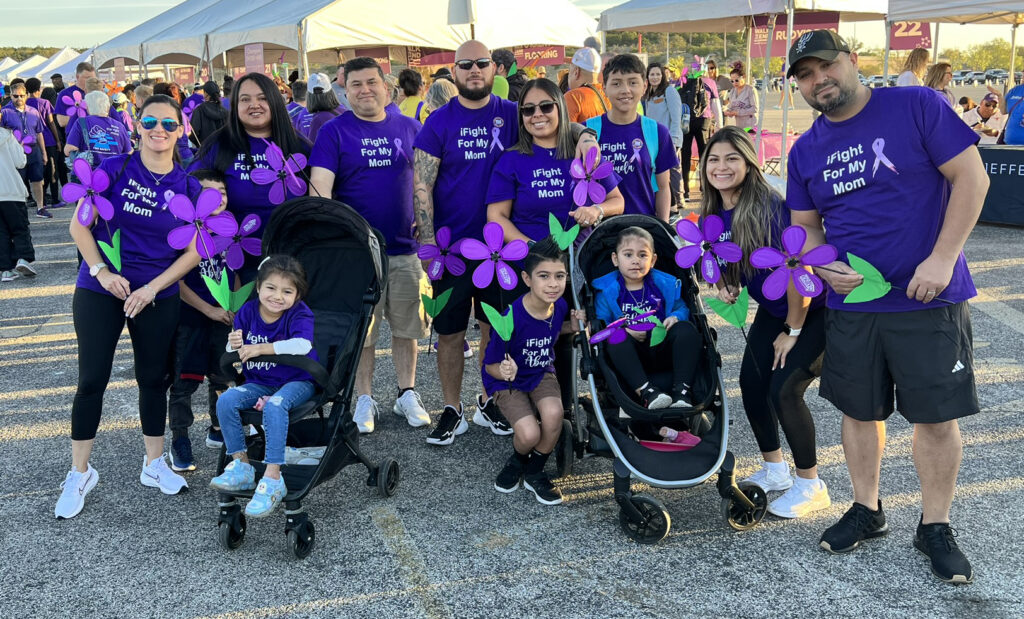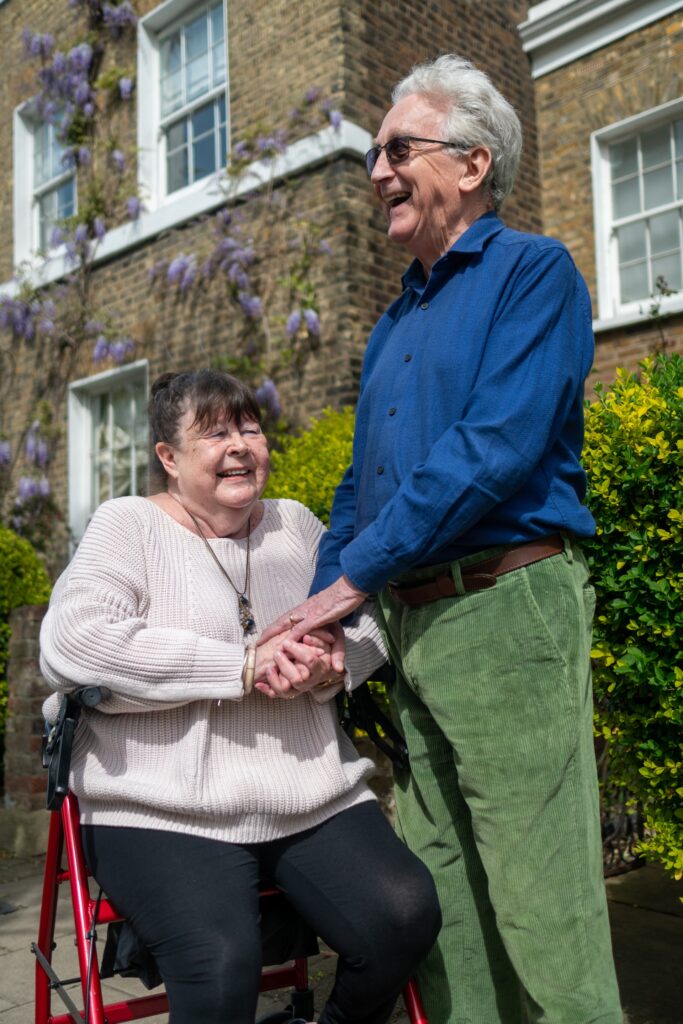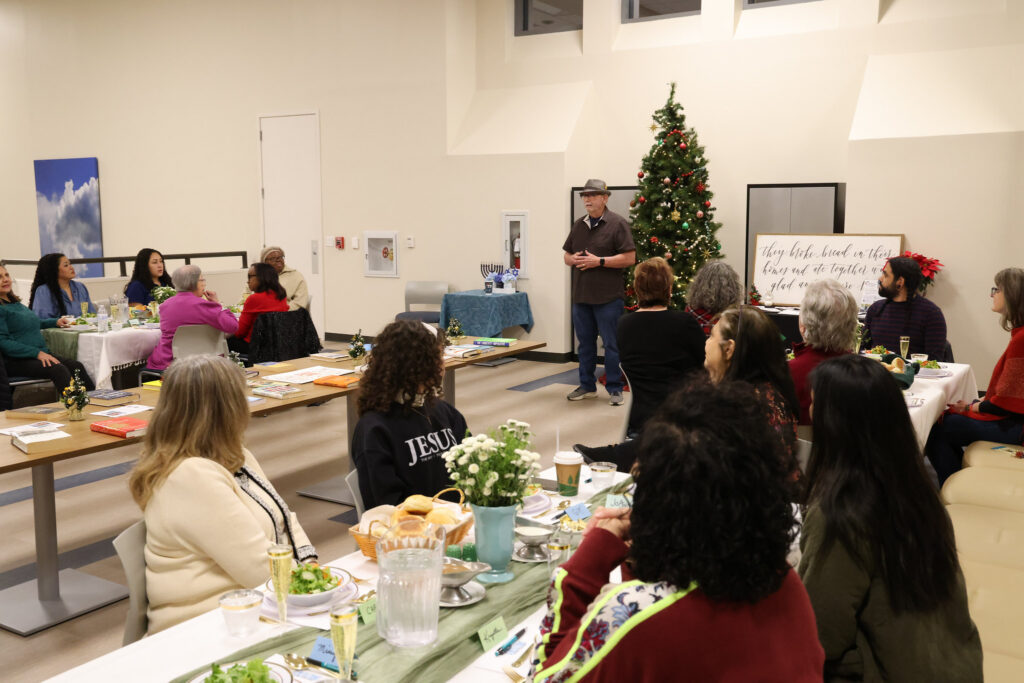Let’s celebrate caregivers – by caring for them.

Celebrating family caregivers during National Family Caregivers Month enables us to raise awareness, increase support and honor all the love and care they provide to their families. November is also National Alzheimer’s Disease Awareness Month.
There are more than 11 million family caregivers in the U.S., and nearly half of these provide help to someone with Alzheimer’s or another dementia. Here in Texas, there are around one million caregivers who provide 1.5 billion hours of unpaid care, valued at $23.5 billion.
Caring for a loved one with Alzheimer’s and dementia means facing unique challenges. It is exceptionally demanding, with caregivers often managing multiple conditions including gradual loss of mobility, emotional issues and behavioral/personality changes.

Caregiving tasks are often intense and burdensome and caregivers of people living with Alzheimer’s often have to provide care over a very long period of time. Average life expectancy following a diagnosis is four to eight years but can also be as long as 20.
Caregivers report greater stress and personal health problems, with 59 percent of Alzheimer’s caregivers reporting their emotional stress as high or very high while35 percent report their own declining health because of caregiving.
Impact on employment is staggering: 57 percent report needing to go in late or leave early due to care responsibilities, with 18 percent having to reduce their work hours and nine percent giving up work entirely.
What can we do to help? Providing support to caregivers can be easier than most people think. Even little acts can make a huge difference. The Alzheimer’s Association offers these recommended steps:
- Learn: Educate yourself about Alzheimer’s disease – its symptoms, its progression and the common challenges facing caregivers
- Build a team: Organize family and friends who want to help with caregiving. Search for free, online care calendar resources that families can use to build their care team and coordinate helpers.
- Give Caregivers a break: Make a standing appointment to spend time with the person living with dementia and allow the caregiver a chance to run errands, go to their own doctor’s appointments, participate in a support group or engage in an activity that helps them recharge. Even one hour could make a big difference in providing the caregiver some relief.
- Check in: Many Alzheimer’s and dementia caregivers report feeling isolated or alone. So, start the conversation – a phone call to check in, sending a note or stopping by for a visit can make a big difference and help them feel supported.
- Tackle the to-do list: Ask for a list of errands that need to be run – such as picking up groceries or prescriptions. Offer to do yard work or other household chores.
- Be specific and be flexible: Open-ended offers of support (“call me if you need anything” or “let me know if I can help”) may be well-intended but are often dismissed. Be specific in your offer (“I’m going to the store, what do you need?”).
- Help for the holidays: Holiday celebrations are often joyous occasions, but they can be challenging and stressful for families facing Alzheimer’s. Help caregivers around the holidays by offering to help with cooking, cleaning or gift shopping.
- Join the fight: Honor a person living with the disease and their caregiver by joining the fight against Alzheimer’s. You can volunteer with your local Alzheimer’s Association chapter, participate in fundraising events such as Walk to End Alzheimer’s and The Longest Day, advocate for more research funding, or sign up to participate in a clinical study through the Alzheimer’s Association’s Trial Match.
Ginny Funk is Director of Programs at the Alzheimer’s Association of San Antonio & South Texas, a member of the Area Foundation’s Successfully Aging and Living in San Antonio (SALSA) initiative, which advocates for our region’s older adults.

